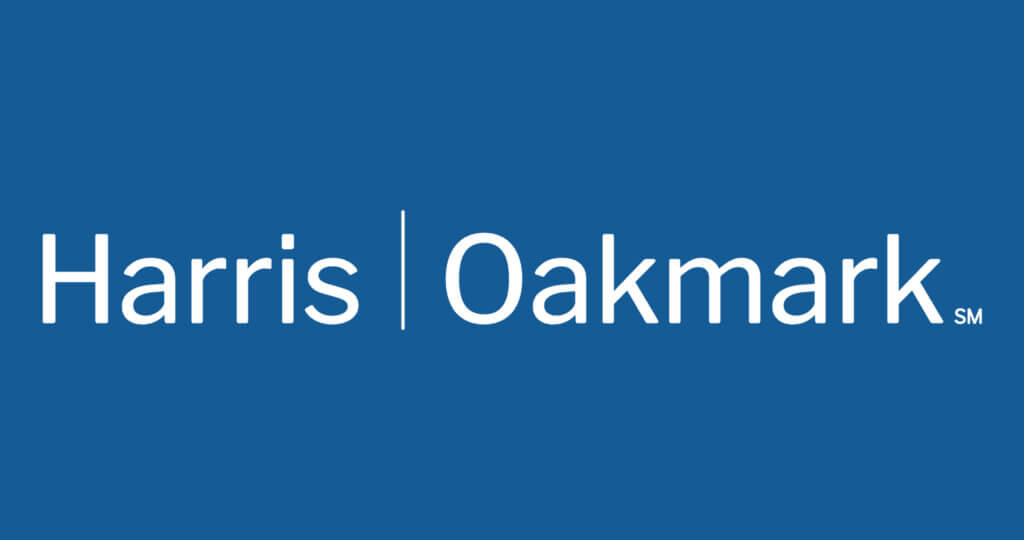Oakmark International Fund - Investor Class
Average Annual Total Returns 03/31/12
Since Inception 09/30/92 10.22%
10-year 7.96%
5-year 0.38%
1-year -1.86%
3-month 16.80%
Gross Expense Ratio as of 09/30/11 was 1.06%
Past performance is no guarantee of future results. The performance data quoted represents past performance. Current performance may be lower or higher than the performance data quoted. The investment return and principal value vary so that an investor’s shares when redeemed may be worth more or less than the original cost. The performance of the Funds does not reflect the 2% redemption fee imposed on shares redeemed within 90 days of purchase. To obtain the most recent month-end performance data, view it here.
The Oakmark International Fund returned 17% for the quarter ended March 31, 2012, outperforming the MSCI World ex U.S. Index, which returned 10% over the same period. For the first six months of the Fund’s fiscal year, the Fund returned 21% which outperformed the MSCI World ex U.S. Index’s 14% return. Since its inception in September 1992, the Fund has returned an average of 10% per year, outperforming the MSCI World ex U.S. Index, which has averaged 6% per year over the same period.
The top contributor to the Fund’s quarterly performance was Daimler AG, a global automotive manufacturer, which returned 37%. Daimler’s stock price advanced significantly during the quarter, reversing its declines over the past few quarters. Despite tremendous growth for Daimler’s Mercedes Car Group, its largest division, the company’s performance had lagged behind BMW and Audi. We believe Daimler is poised to rebound over the next couple of years because the company has several competitive advantages. Its new small-car models, which will be rolled out this year, will not only help Mercedes grow and regain competitive status, but should also boost profitability because these new models use the fixed costs of currently idle plants. Also, because the Mercedes brand is much later into its model cycle than BMW or Audi, Daimler plans to ramp up the number of launches in 2013. In February, Daimler released its full-year 2011 results, which included strong revenue numbers in all segments except for Daimler buses. By division, the best performance came from Daimler trucks, where revenue advanced 20%, followed by Mercedes-Benz vans (revenue up just over 17%) and Mercedes-Benz cars (revenue up almost 8%). The company’s finance business also performed well and realized a return-on-equity increase of nearly 26% for the year. Additionally, free cash flow remains strong. We remain excited about the future prospects for this high-quality company and believe these strong results may signal a resurgence in the auto manufacturing industry.
Another large contributor to performance was Bank of Ireland, an Irish banking services provider. Ireland’s challenging financial environment has depressed the price of Bank of Ireland, but shares rebounded in the first quarter, returning 55%. Bank of Ireland has deleveraged its balance sheet. During the quarter, management announced that it had disposed of €8.6 billion in assets at a discount to book value of only 7.1%, much lower than the anticipated 15% discount. Its liquidity position has improved and capital levels remain strong. Recent market consolidation has left Bank of Ireland as the only exchange-listed bank in the country not controlled by the government. The diminished banking system and reduced competition should generate higher profitability during more normal economic conditions. It will take time for the economic environment to improve in Ireland, but in our view, Bank of Ireland will emerge on top.
Very few stocks detracted from performance during the quarter. The largest detractor was Philips Electronics, a global electronics and medical systems manufacturer. Philips fell 4% because of disappointing fourth-quarter results caused by weak European markets that struggled amid the European debt crisis. Management also indicated that the first half of 2012 would be difficult because savings from restructuring efforts won’t affect the company’s lighting and health-care segments until the second half of the year. However, management stands behind its 2013 targets and implemented a new incentive plan that will vest only if the targets are achieved. We believe Philips will be a good long-term investment for our shareholders.
We sold BAE Systems from the Fund during the quarter and used the proceeds to purchase Smiths Group, a U.K.-based global technology company. Smiths delivers products and services for the threat and contraband detection, medical devices, energy, communication and engineered components markets worldwide.
Our geographical composition changed slightly over the past quarter. Our European holdings remained unchanged at approximately 72%, and our Pacific Rim exposure remained unchanged at approximately 26%. Our Latin America and North America (Canada) exposure remained the same at approximately 2%.
We continue to believe many global currencies are overvalued compared to the U.S. dollar, so we continue to defensively hedge the Fund’s currency exposure. As of quarter-end, approximately 55% of the Australian dollar, 40% of the Japanese yen, 40% of the Swiss franc and 21% of the Swedish krona exposures were hedged.
As long-term value investors, we continue to focus on finding what we believe are attractive, undervalued foreign companies with management teams focused on building shareholder value. We thank you for your continued support.
As of 3/31/12, Daimler AG represented 3.4%, Bayerische Motoren Werke AG 0%, Audi AG 0%, Bank of Ireland 1.8%, Koninklijke (Royal) Philips Electronics NV 2.9%, BAE Systems PLC 0%, Smiths Group PLC 0.8% of the Oakmark International Fund’s total net assets. Portfolio holdings are subject to change without notice and are not intended as recommendations of individual stocks.
The MSCI World ex U.S. Index (Net) is a free float-adjusted market capitalization index that is designed to measure international developed market equity performance, excluding the U.S. This benchmark calculates reinvested dividends net of withholding taxes using Luxembourg tax rates. This index is unmanaged and investors cannot invest directly in this index.
Investing in foreign securities presents risks that in some ways may be greater than U.S. investments. Those risks include: currency fluctuation; different regulation, accounting standards, trading practices and levels of available information; generally higher transaction costs; and political risks.
The discussion of the Funds’ investments and investment strategy (including current investment themes, the portfolio managers’ research and investment process, and portfolio characteristics) represents the Funds’ investments and the views of the portfolio managers and Harris Associates L.P., the Funds’ investment adviser, at the time of this letter, and are subject to change without notice.






